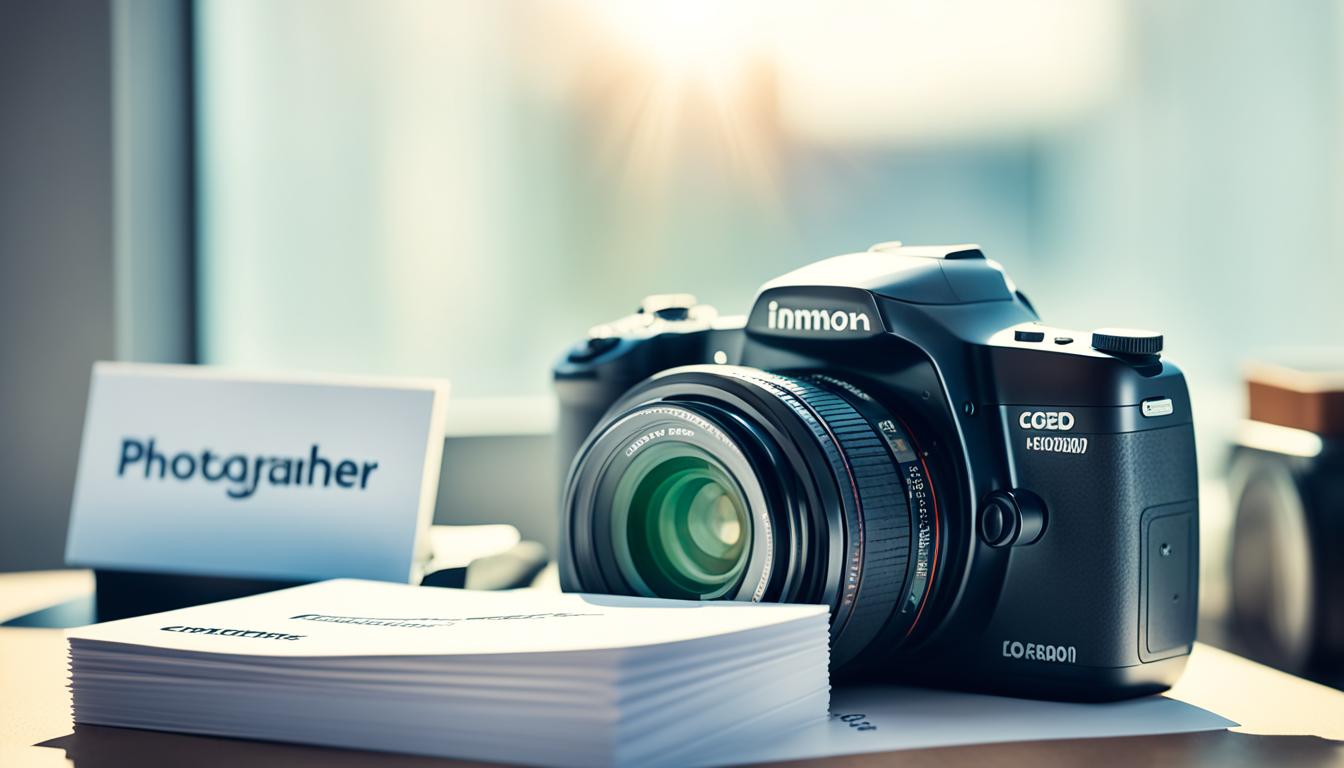Welcome to our guide on how to start a photography business, which can be exhilarating yet daunting. In this comprehensive guide, we’ll delve into the essential steps and strategies to kickstart your venture with confidence and pave the way for success in the competitive world of photography entrepreneurship.
How To Start a Photography Business Successfully?
Starting a photography business can be a dream come true for many photographers. Whether you’re a budding photographer looking to turn your passion into a profession or an experienced photographer ready to branch out on your own, taking the leap into entrepreneurship can be both exciting and daunting. However, with proper planning and the right strategies, you can set yourself up for success. In this beginner photography business guide, we’ll explore essential tips to help you start your photography business on the right foot.
One of the first steps in starting a photography business is understanding the key aspects and considerations involved. From choosing the right equipment to setting prices and securing insurance coverage, each decision can have a significant impact on your business’s trajectory. By gaining a solid foundation and implementing effective strategies, you can increase your chances of building a thriving photography business.
In the upcoming sections, we’ll delve into crucial topics to guide you through the process. We’ll explore how to choose the right equipment for your photography business, the importance of insurance coverage, and effective pricing strategies. By the end of this guide, you’ll have a comprehensive understanding of the essential steps needed to start your photography business and pave the way for long-term success.
So, whether you aspire to start a photography business from home, on the side, or even as a young entrepreneur, this guide has got you covered. Let’s dive in!
How to Choose the Right Equipment for Your Photography Business?
When setting up a photography business, selecting the right equipment is crucial for delivering high-quality photographs and building a reputable brand. While it can be tempting to splurge on the latest gear, it’s important to consider your budget and prioritize the essentials. Here are some key factors to keep in mind when choosing the equipment for your photography business:
1. Determine Your Niche and Photography Style
Understanding your niche and preferred photography style will help you identify the specific equipment you need to invest in. For example, if you specialize in landscape photography, a sturdy tripod and wide-angle lens might be essential. On the other hand, portrait photographers may require a reliable studio lighting setup and a range of appropriate lenses.
2. Research and Compare Equipment
Before making any purchases, it’s crucial to research and compare different brands and models of cameras, lenses, lighting equipment, and accessories. Consider factors such as image quality, durability, customer reviews, and compatibility with your chosen photography style.
3. Start with the Basics
If you’re starting your photography business on a tight budget, focus on acquiring the essential equipment first. Invest in a reliable camera body, a versatile lens, a tripod, and sufficient memory cards and batteries. As your business grows and generates revenue, you can gradually expand your equipment arsenal.
4. Consider Second-hand or Rental Options
If you’re facing financial constraints, consider purchasing second-hand equipment or renting gear until you can afford to invest in brand new items. Many photography stores and online platforms offer used equipment at discounted prices, allowing you to save money without compromising on quality.
5. Don’t Overlook Backup Equipment
Having backup equipment is essential to avoid any disruptions in your photography business. Accidents and malfunctions can happen, so it’s wise to have spare camera bodies, lenses, and other accessories readily available. This ensures that you can continue working even if one of your primary pieces of equipment fails.
Investing in the right equipment is an investment in your business and the quality of your work. Take the time to research, compare, and prioritize your needs to make informed decisions that align with your budget and photographic style.

Remember, starting a photography business with little to no money is possible with careful planning and resourcefulness. By choosing the right equipment and focusing on delivering exceptional photography services, you can build a successful photography business from the ground up.
Importance of Insurance for Your Photography Business
When starting a photography business, one crucial aspect that often gets overlooked is insurance coverage. Having the right insurance in place is essential for protecting your business, yourself, and your clients. Let’s explore why insurance is important and how it can benefit your photography business.
Protection against Accidents and Liability
As a photographer, you work with expensive equipment and often in different locations, which increases the risk of accidents and damages. Accidental damage to your camera or other equipment can be costly to repair or replace. Having insurance coverage for your gear can provide financial protection and allow you to continue working without a significant financial setback.
Moreover, accidents can happen during photoshoots, such as slips, falls, or equipment malfunctions, which can lead to injuries. In such cases, liability insurance can cover the costs associated with bodily injury or property damage claims, protecting your business from potential lawsuits and ensuring that your clients are adequately compensated.
Securing Your Business Assets and Income
Running a photography business involves several valuable assets, including your studio, office equipment, and data. Any damage or loss to these assets can disrupt your operations and result in significant financial losses. By having appropriate insurance coverage, you can safeguard your business assets and ensure that you can get back on track quickly in the event of any unforeseen circumstances.
Additionally, insurance can also provide protection for your income. Interruptions to your photography business due to unforeseen events, such as natural disasters or personal emergencies, can lead to a loss of income. With business interruption insurance, you can receive financial compensation to cover ongoing expenses and lost income during such periods, allowing you to sustain your business and meet your financial obligations.
Reassurance for Clients
Having insurance coverage can instill confidence in your clients, as it shows that you are a professional and take your business seriously. Clients want assurance that their investment in your services is protected, and knowing that you have appropriate insurance can give them peace of mind. This trust can help attract and retain clients, who are more likely to hire photographers with the necessary coverage.
Failing to have the right insurance coverage can put your photography business at risk. A single incident can have significant financial consequences and potentially ruin your reputation. Don’t overlook the importance of insurance for your photography business. It’s vital for your peace of mind and the long-term success of your venture.
Remember, different types of insurance can cater to specific risks and needs of your photography business. It’s essential to assess your business requirements and consult with an insurance professional or broker to determine the appropriate coverage for your specific circumstances.
Next, we’ll delve into the pricing strategies for your photography business, ensuring that you set the right prices to maximize your profitability and attract clients.
Pricing Strategies for Your Photography Business
Setting the right prices for your photography services is crucial for the success of your business. When determining your pricing structure, consider the following factors:
- Cost of Equipment and Supplies: Calculate the expenses associated with your photography equipment, such as cameras, lenses, lighting, and editing software. Don’t forget to include the costs of printing, framing, and packaging materials.
- Time and Skill: Your hourly rate should reflect your expertise, experience, and the time it takes to capture and edit photographs. Consider the value you bring to your clients through your unique style and artistic vision.
- Competitor Analysis: Research the prices of other photographers in your area to understand the market rates. Differentiate yourself by offering additional services or packages that add value to your clients.
- Target Market: Determine your ideal client and their willingness to pay for photography services. For example, wedding photography pricing may vary from corporate event photography.
- Operating Expenses: Consider the overhead costs of running your business, such as marketing, website maintenance, insurance, and travel expenses.
You may also consider offering different packages at different price points to cater to various client needs. For example, a basic package may include a limited number of edited photos, while a premium package may include additional services like an engagement shoot or a custom album.
Remember, as you gain experience and build a strong portfolio, you can adjust your prices accordingly. Don’t undervalue your work, but also be mindful of pricing yourself out of the market. Finding the right balance is key.
Remember, as you gain experience and build a strong portfolio, you can adjust your prices accordingly.
By carefully considering these factors and continuously evaluating the market, you can develop a pricing strategy that positions your photography business for success.
| Factors to Consider | Tips |
|---|---|
| Cost of Equipment and Supplies | Calculate all expenses related to your gear, printing, and packaging materials. |
| Time and Skill | Value your expertise, experience, and the time you invest in capturing and editing photographs. |
| Competitor Analysis | Research the prices of other photographers in your area to understand the market rates. |
| Target Market | Identify your ideal client and tailor your pricing based on their preferences and willingness to pay. |
| Operating Expenses | Consider the costs associated with running and marketing your photography business. |
Remember, finding the right pricing strategy is an ongoing process. Regularly reassess your prices to ensure they align with the value you provide and the market demands. With a well-thought-out pricing structure, you can attract clients, cover your expenses, and build a profitable photography business.

Conclusion
Starting a photography business from home, on the side, or even as a kid can be an exciting and rewarding endeavor. By implementing the tips and strategies outlined in this guide, you can set yourself up for success in the competitive photography industry.
To begin, focus on honing your photography skills through practice and continuous learning. Take advantage of online resources, workshops, and mentorships to enhance your technique and creativity. Remember, the more you invest in developing your skills, the more you can offer your clients.
Providing excellent customer service is essential for gaining and retaining clients. Respond promptly to inquiries, actively listen to your clients’ needs, and deliver high-quality work that exceeds their expectations. Building strong relationships with your clients will foster loyalty and lead to positive word-of-mouth recommendations.
Additionally, effective marketing is crucial for growing your photography business. Utilize social media platforms, create a professional website, and showcase your work through portfolios and testimonials. Collaborate with other local businesses, participate in community events, and leverage the power of online advertising to expand your reach and attract new clients.
Becoming a successful photographer requires passion, dedication, and a willingness to adapt to the ever-evolving industry. Embrace new technologies, stay updated with the latest trends, and continually strive for improvement. With perseverance and a strong work ethic, you can turn your passion for photography into a thriving business. Good luck on your journey!




